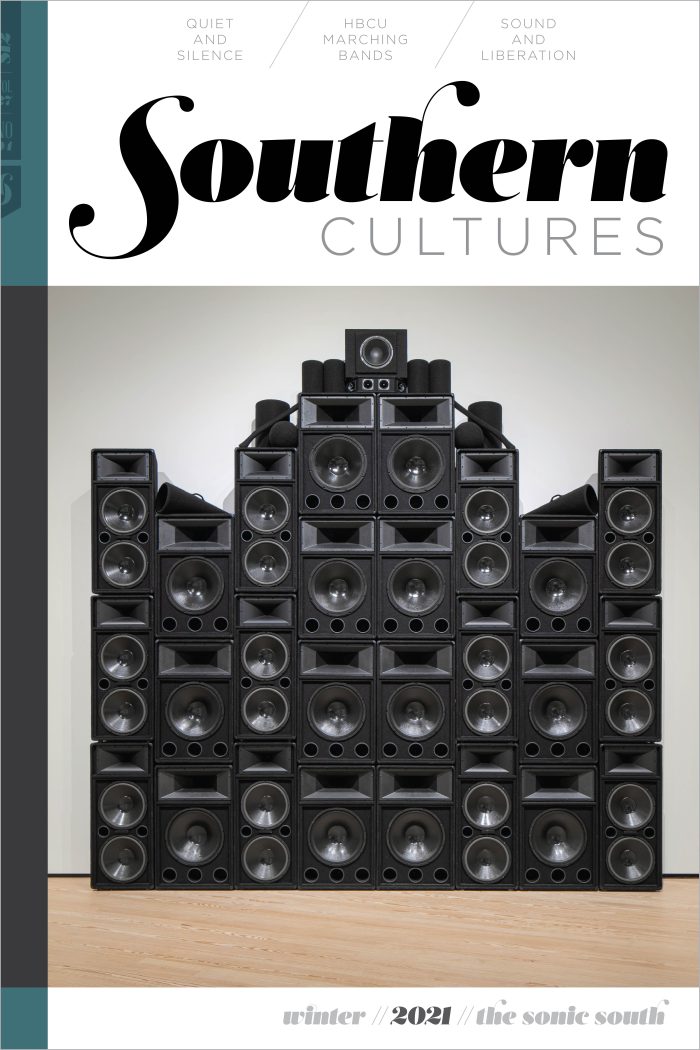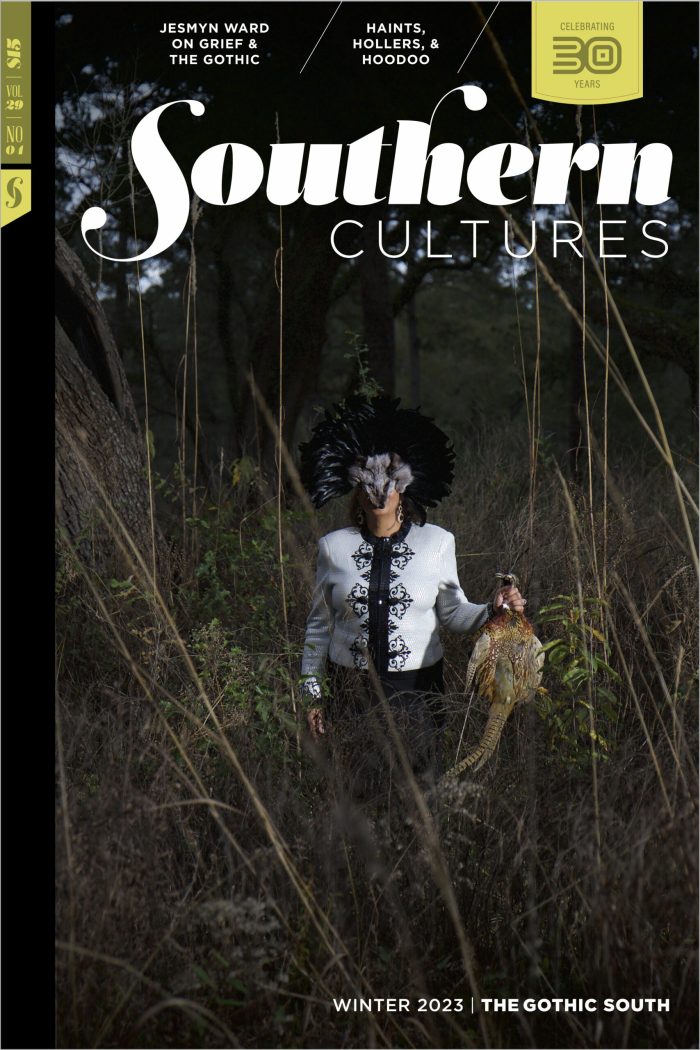Essay
by Tom Rankin
“So much of what is calling to us in the South remains yet unheard.” A Southern Cultures issue on the Sonic South is especially welcome in this moment, so necessary as we continue to listen for what is hidden within the culture and history of the region. And while we listen for these rhythms, the muffled »
Essay
by Regina N. Bradley
One thing I did not have on my 2020 Bingo Card was being sonically minstrelized by a white man. A friend asked me to write a short reflection about OutKast and their connection to Afrofuturism for a special issue of a fiction magazine featuring writers of color. My piece talked about the Kast’s use of »
Essay
Soundscapes of Slavery at the University of Mississippi
by Kristin Gee Hickman
“Mundane practices are what form habits, stabilize norms, and reproduce culture. This begs the question: What culture am I reproducing by repeating the words Ole Miss?” As someone not originally from the South, I find it difficult to pronounce the words “Ole Miss.” Saying it feels like playing dress-up because it forces me, even if »
Memoir
by Joanna Welborn
Windy Gap Road twists up Little Brushy Mountain, dense forest on all sides until you crest the top and feel like you’re driving right into the sky. Follow the road a short way until it crosses Cling Johnson Road, named for my great-grandfather, and at the very end, you’ll hit the Johnson homestead: a medium-sized »
Music
Marching Bands and Black Masculinity in New Orleans
by Matt Sakakeeny
Summer is the season when the new recruits arrive. They are kids, eight or nine years old, and most have never touched an instrument. On June 20, 2019, I crowd into an air-conditioned classroom with about thirty of them, sitting on industrial carpet, facing forward. LeBron Joseph stands in front of the whiteboard writing out »
Essay
by Monica Moses Haller
I. I grew up between Minneapolis and a small farm just outside the city on the occupied Indigenous homelands of the Dakota people in the Twin Cities and also of the Anishinaabe, or Ojibwe people, to the north. As an adult who has moved away from and returned to Minneapolis multiple times over the past »
Music
The Sweet Subversive Sounds of HBCU Marching Bands
by Antron D. Mahoney
“The music is a gift; it makes room for us.” As a young Black queer male growing up in South Carolina, I was fascinated by marching bands at historically Black colleges and universities (HBCUs). Involved in music programs at an early age, many of my music directors were HBCU alumni—South Carolina State, Savannah State, Fayetteville »
Music
by Abigail Greenbaum
“I’d started to doubt the Gram Parsons myth, but I could still feel its narcotic lull.” Like many white Xennials, I learned about Gram Parsons late at night in a college dorm room, stoned and listening to somebody’s hippie parents’ records. Parsons played in the Byrds and taught the Rolling Stones about country music. He »
Essay
Moving Toward Educational Liberation in K-12
by Kristofer Graham,
Jessica Peacock,
Christina Spears,
Keisha Worthey
Silence is both a noun and a verb—defined as the absence of sound and the prohibition of speech, respectively. Silence is a gift and a curse. It is a tool for liberation and a tool of oppression. Silence is complex; it can communicate both rest and labor, compliance and resilience, humility and pride. Silence is »
Poetry
by James Jabar
In an interview with NPR, Brenda Graham recounts her experience after her brother was accused in the 1958 “Kissing Case” in Monroe, North Carolina. Yes; right there in the front yard where daddylonglegs skipped across blades of grass, dripping in white mob sweat from the night before; right there in the front yard whereChrist’s wooden frame was »





